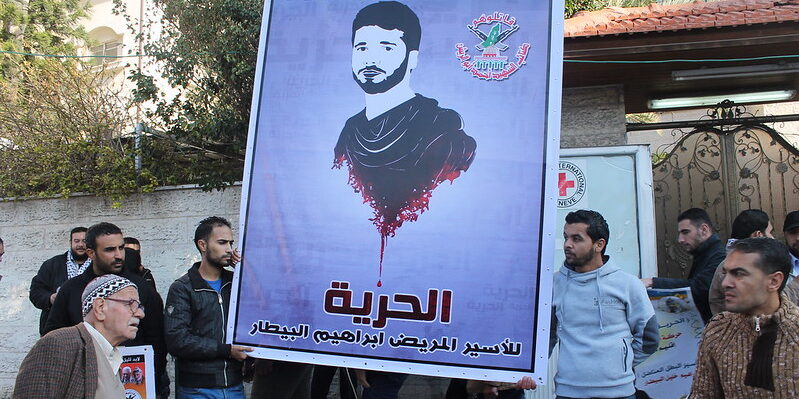Following negotiations between Qatar, the United States, and Egypt a ceasefire deal between Israel and Hamas has been reached, bringing to an end a 15-month-long offensive on Gaza.
Under the initial stage of the agreement, Hamas is set to release 33 captives, while Israel will free 1,900 Palestinian detainees, including women, men, and minors.
The ceasefire in Gaza does not extend to the West Bank, where over 60 Palestinians have been detained since the deal was announced.
Award winning Canadian journalist Samira Mohyeddin shared her thoughts on the current ceasefire with rabble.
“We have this ceasefire in Gaza, but we see attacks happening in Jenin, Palestinians are being killed there. And then as Palestinian hostages are being released, we are seeing in the West Bank more than 60 people arrested and detained,” Mohyeddin said.
She also shared that “these are administrative detainees. Most of these people aren’t charged with crimes.”
Administrative detention is a practice where individuals are imprisoned without charge or trial, often based on undisclosed evidence. This procedure allows Israeli authorities to detain Palestinians for renewable periods, sometimes extending for years, without presenting formal charges.
The Palestinian prisoners whose freedom is promised under the current ceasefire deal include women, men, and children as young as 15. Some of these prisoners were arrested decades ago for offenses ranging from deadly attacks, to children charged for throwing stones at Israeli soldiers. This is a result of a law passed by the Knesset which allows for the conviction and trial of children “even if they are under the age of 14.”
The Israeli prisoners taken hostage by Hamas include soldiers, both male and female, as well as journalists and civilians.
Hostages or prisoners?
While citizens in both Israel and Palestine celebrate the return of those who had been taken captive, controversy has ensued over the media coverage of Palestinian prisoners compared to Israeli hostages. Observers and media analysts have noted discrepancies in the portrayal of Israeli hostages and Palestinian prisoners, pointing out that Israeli hostages are often more humanised in media narratives.
News outlets such as the CBC have analysed this discrepancy, a piece by Chris Brown stating that, “While many Palestinians see the plight of detainees as akin to that of the captured Israeli hostages, the issue of equivalence is polarizing in Israel — and among Jewish groups outside the country, including in Canada.”
Mohyeddin shared similar sentiments with rabble, “The most obvious differences are the fact that we call them Palestinian prisoners and we call the Israelis hostages, even though many of them are actually IDF soldiers who have been taken.”
Younger Israeli individuals, especially children like Kfir and Ariel Bibas who were taken hostage by Hamas, are frequently highlighted in media reports, evoking greater public empathy. Their stories are often foregrounded to humanise the conflict’s impact on innocent lives – especially since the Bibas children were not included in the list of captives set to be released this past Saturday, which sparked outrage.
Highlighting personal stories, especially of women and children, tends to humanize the subjects, fostering empathy. Conversely, focusing on criminal records or political affiliations can lead to dehumanization, reducing individuals to stereotypes.
Mohyeddin describes that women soldiers in the Israeli army are referred to as “girls” or “young women.” Going further to say that news outlets cover information such as what schools they went to, what music they like, what their mothers and fathers have said. Meanwhile, “The Palestinians are just portrayed as screaming people getting off buses. Most of the time we don’t even know what their names are,” said Mohyeddin.
Research indicates that Western media outlets often employ terms like “militant” or “terrorist” to describe Palestinians, while referring to Israelis as “hostages” or “civilians.”
Moyheddin argues that such portrayals contribute to a narrative that dehumanises Palestinians.
What does this mean for Canada?
She has shared concerns over Canada’s commitment to the International Court of Justice (ICJ) ruling on Israeli Prime Minister Benjamin Netanyahu and what a new government might mean for this.
“Canada has not lived up to its commitment to the ICJ, right,” said Mohyeddin, “I don’t know who’s going to win, but if it’s Pierre Poilievre, you can bet that Canada won’t be living up to its ICJ obligations.”
“He [Poilievre], has already come out and said that if Israel bombs Iran, that it would be a gift to humanity,” Mohyeddin added.
When asked about Trump’s current presidency, Mohyeddin grimly states that Trump’s statements “show that the West Bank is what’s going to be sacrificed.”
“The first thing that he [Trump] did was lift the sanctions on the settlers that are committing criminal acts in the occupied West Bank. I think that he’s going to let Netanyahu run roughshod in the West Bank,” said Mohyeddin.



